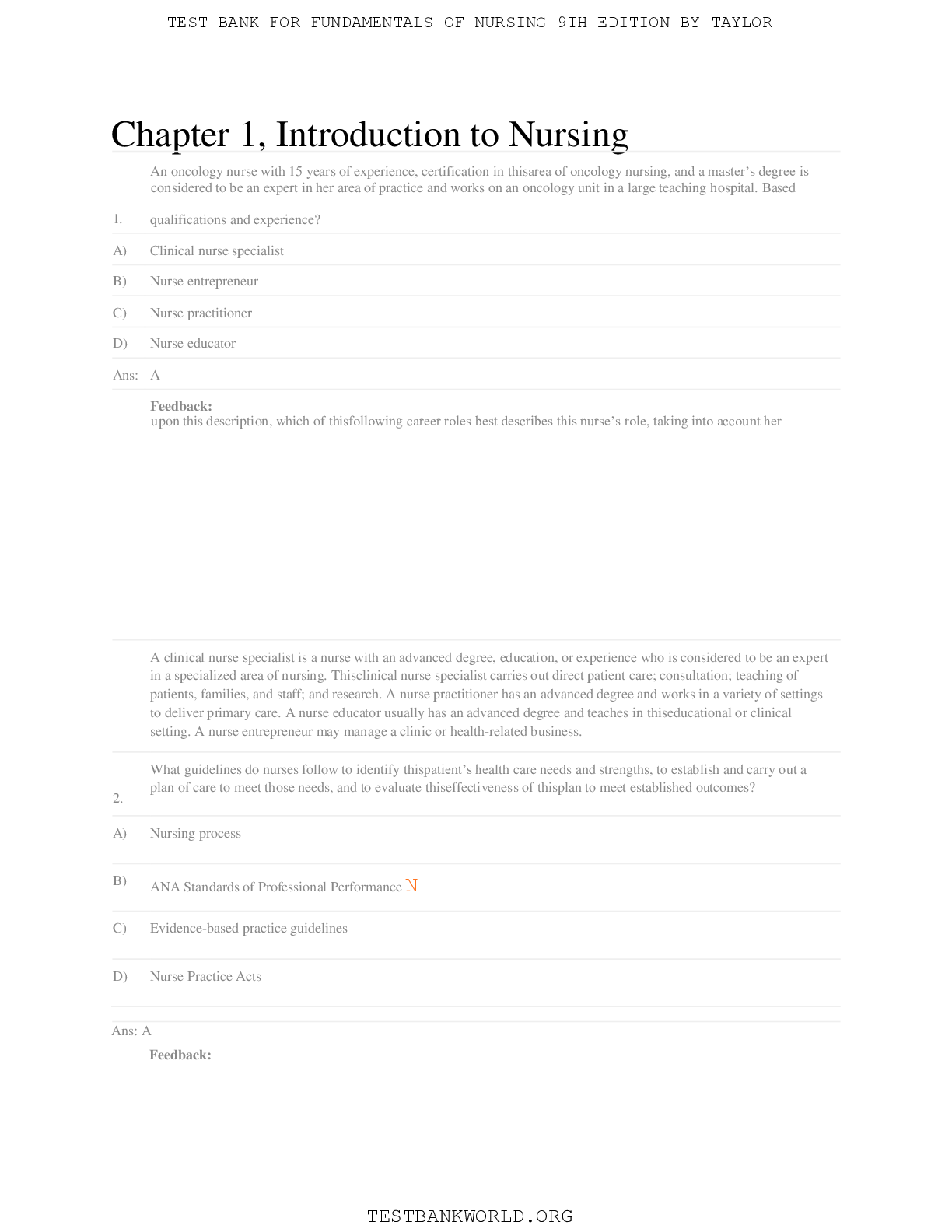Finance > TEST BANKS > Test Bank For Fundamentals of Taxation for Individuals A Practical Approach, 2024 Edition by Gregory (All)
Test Bank For Fundamentals of Taxation for Individuals A Practical Approach, 2024 Edition by Gregory A. Carnes, Suzanne Youngberg
Document Content and Description Below
Test Bank For Fundamentals of Taxation for Individuals A Practical Approach, 2024 Edition by Gregory A. Carnes, Suzanne Youngberg-1) Which of the following is false about tax planning? A) The appropr... iate goal for tax planning is to maximize after-tax income. B) The appropriate goal for tax planning is to minimize a taxpayer's tax liability for the year. C) Once a taxpayer understands the tax consequences of a particular transaction, they can move on to the tax planning stage. D) Tax evasion is not a tax planning strategy. Answer: B Explanation: Minimizing a taxpayer's liability is not the appropriate goal for tax planning because if that were the goal, then the ultimate success would be to reduce a taxpayer's tax liability to zero–actually an easy goal to meet. If a taxpayer has no income for the year, then there would be no tax liability, and you will have minimized their taxes. But your client will also be a very poor and hungry person, so this cannot be the proper goal. Diff: 1 Learning Objective: LO 1.1 AACSB / AICPA: Knowledge / Accounting Competencies Bloom's: Knowledge Section Reference: Sec. 1.1 Time on Task: 5 min 2) Jessica has received several job offers from various accounting firms located in 4 different states. She has performed an analysis to determine her income, her non-income tax costs (e.g. cost of living, etc.) and income tax. Jessica is trying to make a decision on which offer to accept, and she has asked for your advice. Based on the appropriate goal of tax planning, which of the following states would you advise Jessica to choose? Gross Wages Non-Income Tax Costs Income Tax California 120,000 52,000 24,000 New York 100,000 37,000 20,000 Virginia 70,000 10,800 10,500 Texas 50,000 6,000 5,000 A) Texas B) California C) Virginia D) New York Answer: C Explanation: The appropriate goal for tax planning is to maximize after-tax income. After-tax income is net income after reducing revenue for all expenses, including federal income taxes. See table below for calculation of after-tax income for each state. With that in mind, you should advise 2 Jessica to choose Virginia because doing so maximizes her after-tax income. The state with the lowest income tax (i.e., Texas) is not the right answer because minimizing a taxpayer's liability is not the appropriate goal for tax planning because if that were the goal, then the ultimate success would be to reduce a taxpayer's tax liability to zero–an easy goal to meet. If a taxpayer has no income for the year, then there would be no tax liability, and you will have minimized their taxes. But your client will also be a very poor and hungry person, so this cannot be the proper goal. Gross Wages (A) Non-Income Tax Costs (B) Income Tax (C) After-Tax Income (D) = (A) - (B) - (C) California 20,000 52,000 24,000 44,000 New York 100,000 37,000 20,000 43,000 Virginia 70,000 10,800 10,500 48,700 Texas 50,000 6,000 5,000 39,000 Diff: 2 Learning Objective: LO 1.1 AACSB / AICPA: Analytic / Accounting Competencies Bloom's: Application Section Reference: Sec. 1.1 Time on Task: 8 min 3) Which of the following is not correct regarding tax and non-tax costs? A) Both tax and non-tax costs must be considered when making financial and investment decisions. B) Tax costs include any type of tax paid to a local, state, federal, or foreign government. C) Non-tax costs are all costs other than tax costs. D) Effective tax planning requires prioritizing tax costs. Answer: D Explanation: Effective tax planning requires consideration of both tax and non-tax costs. Diff: 1 Learning Objective: LO 1.1 AACSB / AICPA: Knowledge / Accounting Competencies Bloom's: Knowledge Section Reference: Sec. 1.1 Time on Task: 5 min 4) Samson's wages are $100,000. He lives in Maryland and his expenses include $25,000 rent, $12,000 other living expenses, $27,000 income tax, $6,200 payroll tax and $5,500 property tax. What are Samson's tax costs? A) $27,000 B) $33,200 C) $61,300 D) $38,700 Answer: D Explanation: $38,700 = $27,000 + $6,200 + $5,500. Tax costs include any type of tax paid to a local, state, federal, or foreign government. Diff: 1 3 Learning Objective: LO 1.1 AACSB / AICPA: Analytic / Accounting Competencies Bloom's: Application Section Reference: Sec. 1.1 Time on Task: 5 min 5) Samson's wages are $100,000. He lives in Maryland and his expenses include $25,000 mortgage interest, $12,000 other living expenses, $27,000 income tax, $6,200 payroll tax and $5,500 property tax. What is Samson's non-tax costs? A) $37,000 B) $12,000 C) $61,300 D) $38,700 Answer: A Explanation: $37,000 = $25,000 + $12,000. Non-tax costs are all costs other than tax costs. Tax costs include any type of tax paid to a local, state, federal, or foreign government. Diff: 1 Learning Objective: LO 1.1 AACSB / AICPA: Analytic / Accounting Competencies Bloom's: Application Section Reference: Sec. 1.1 Time on Task: 5 min 6) Samson's wages are $100,000. He lives in Maryland and his non-tax costs include $25,000 rent and $12,000 other living expenses. His tax costs include $27,000 income tax, $6,200 payroll tax and $5,500 property tax. What is Samson's after-tax income? A) $73,000 B) $24,300 C) $61,300 D) $29,000 Answer: B Explanation: $24,300 = $100,000 - $25,000 - $12,000 - $27,000 - $6,200 - $5,500. After-tax income is net income after reducing revenue for all expenses, including federal income taxes. Diff: 2 Learning Objective: LO 1.1 AACSB / AICPA: Analytic / Accounting Competencies Bloom's: Application Section Reference: Sec. 1.1 Time on Task: 8 min [Show More]
Last updated: 5 months ago
Preview 5 out of 1298 pages

Loading document previews ...
Buy this document to get the full access instantly
Instant Download Access after purchase
Buy NowInstant download
We Accept:

Reviews( 0 )
$18.50
Can't find what you want? Try our AI powered Search
Document information
Connected school, study & course
About the document
Uploaded On
Feb 02, 2025
Number of pages
1298
Written in
Additional information
This document has been written for:
Uploaded
Feb 02, 2025
Downloads
0
Views
22

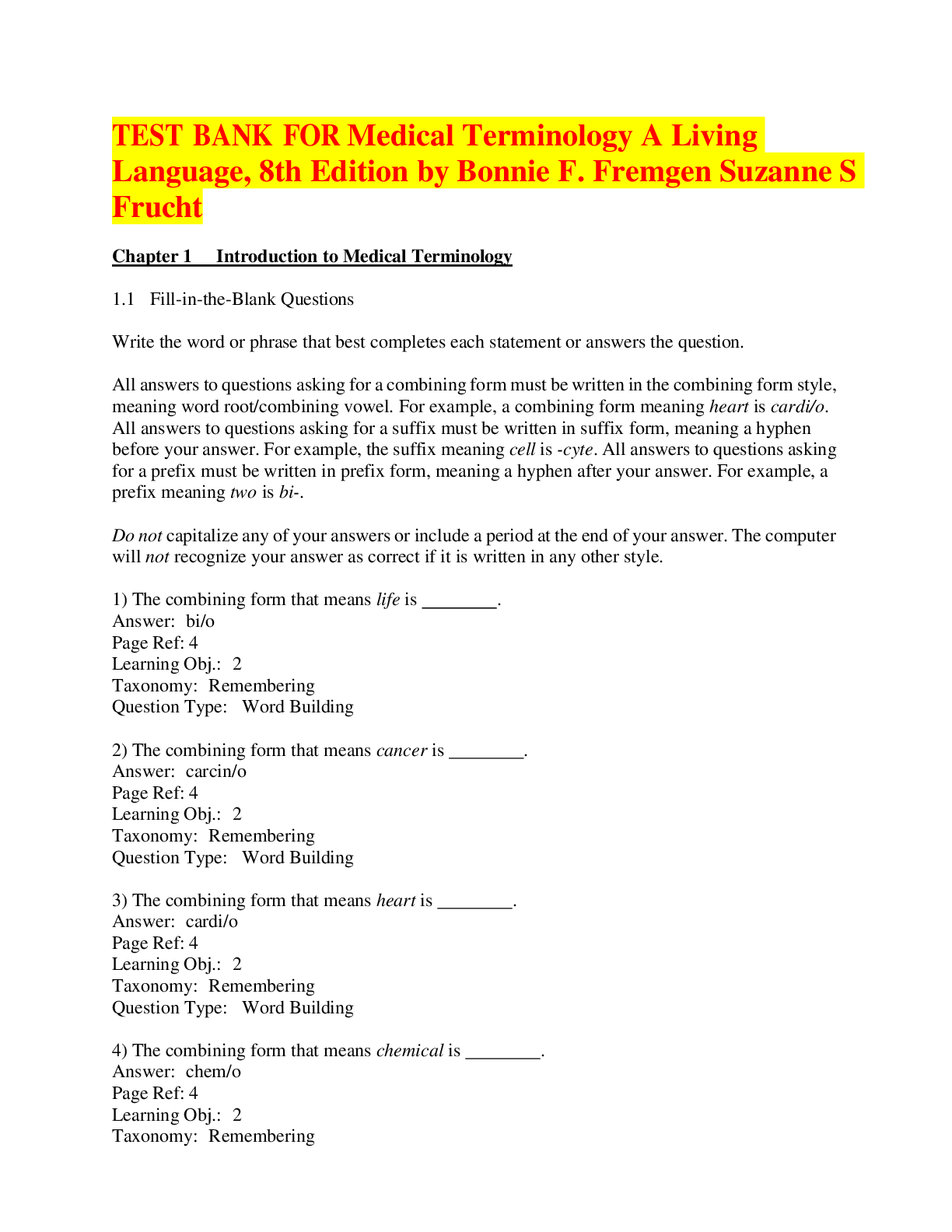
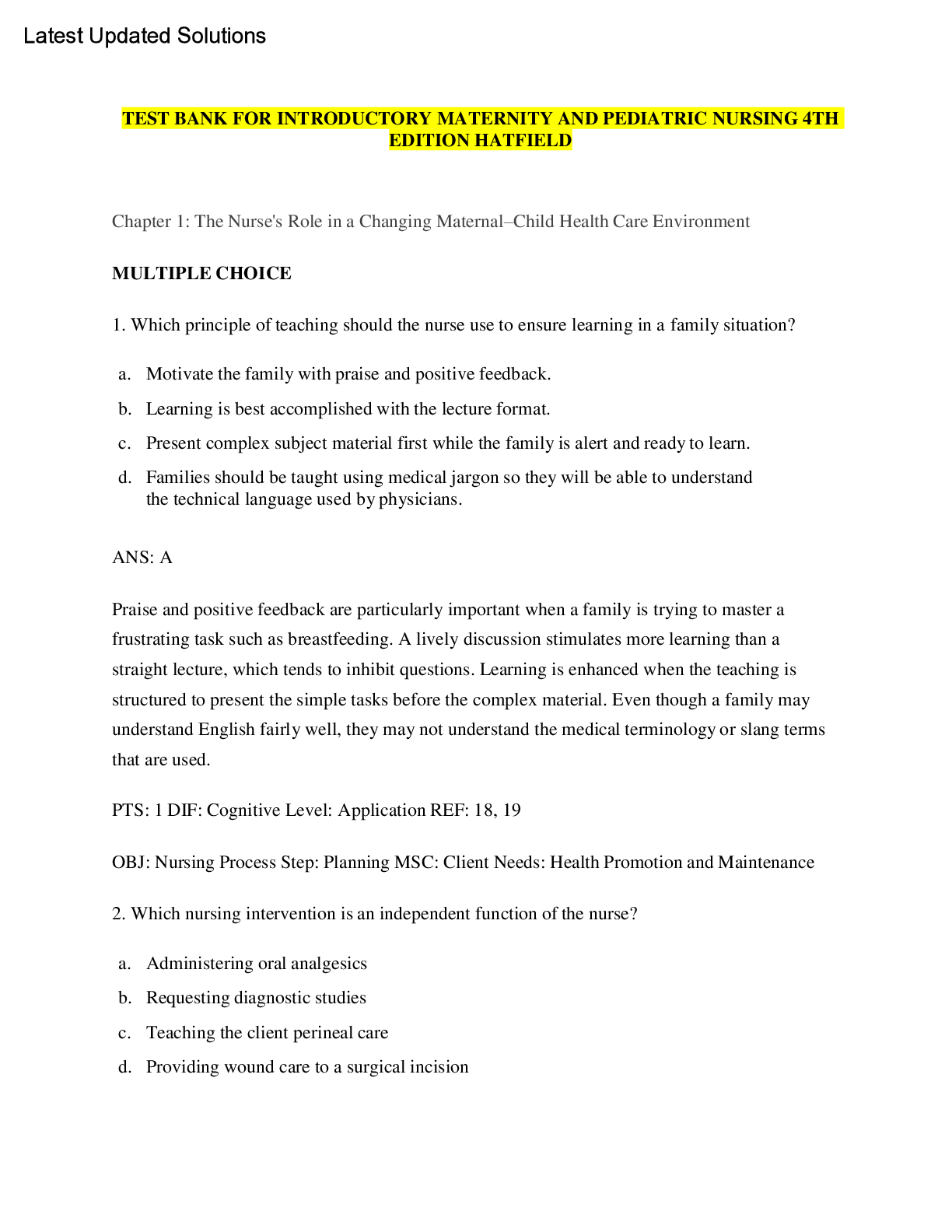
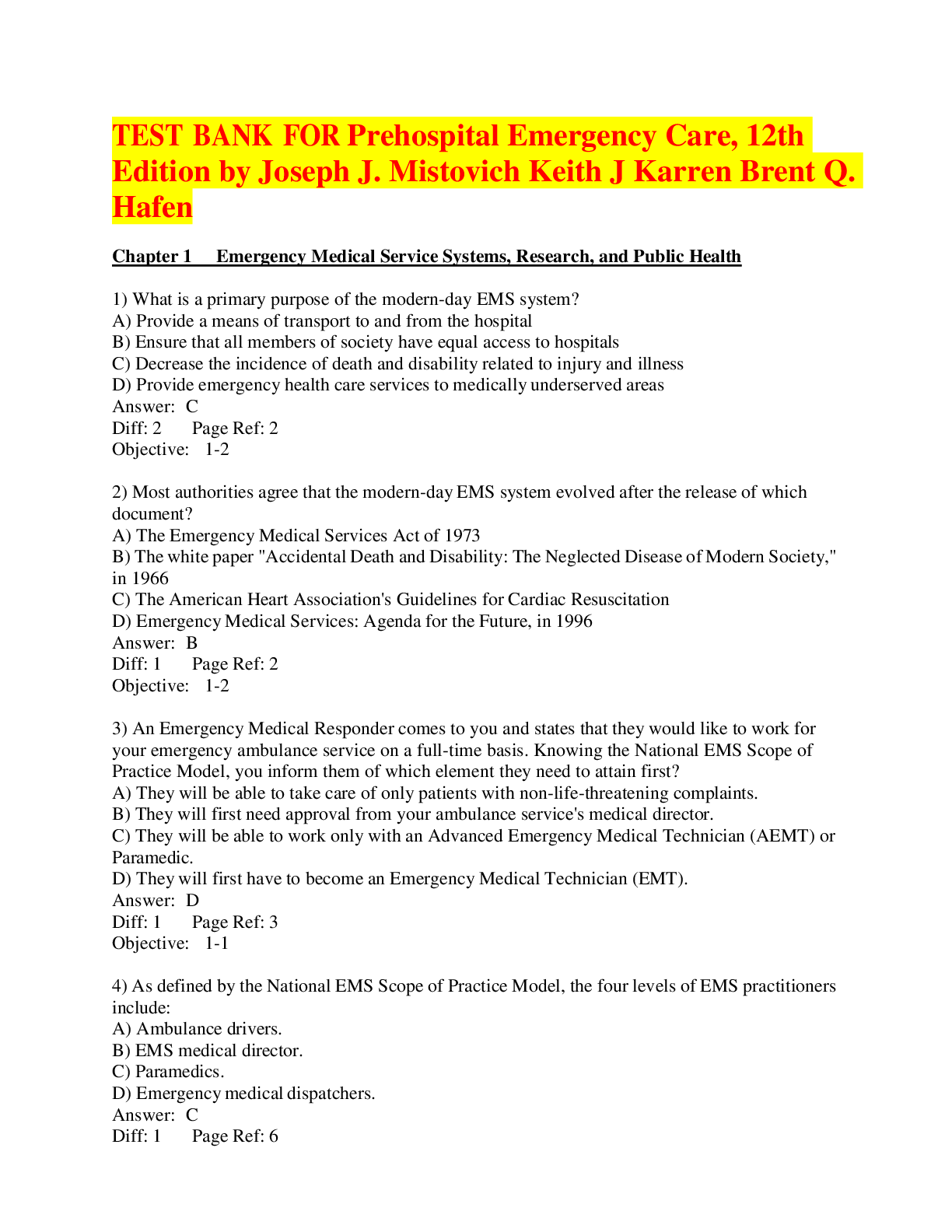


_compressed.png)
.png)
.png)

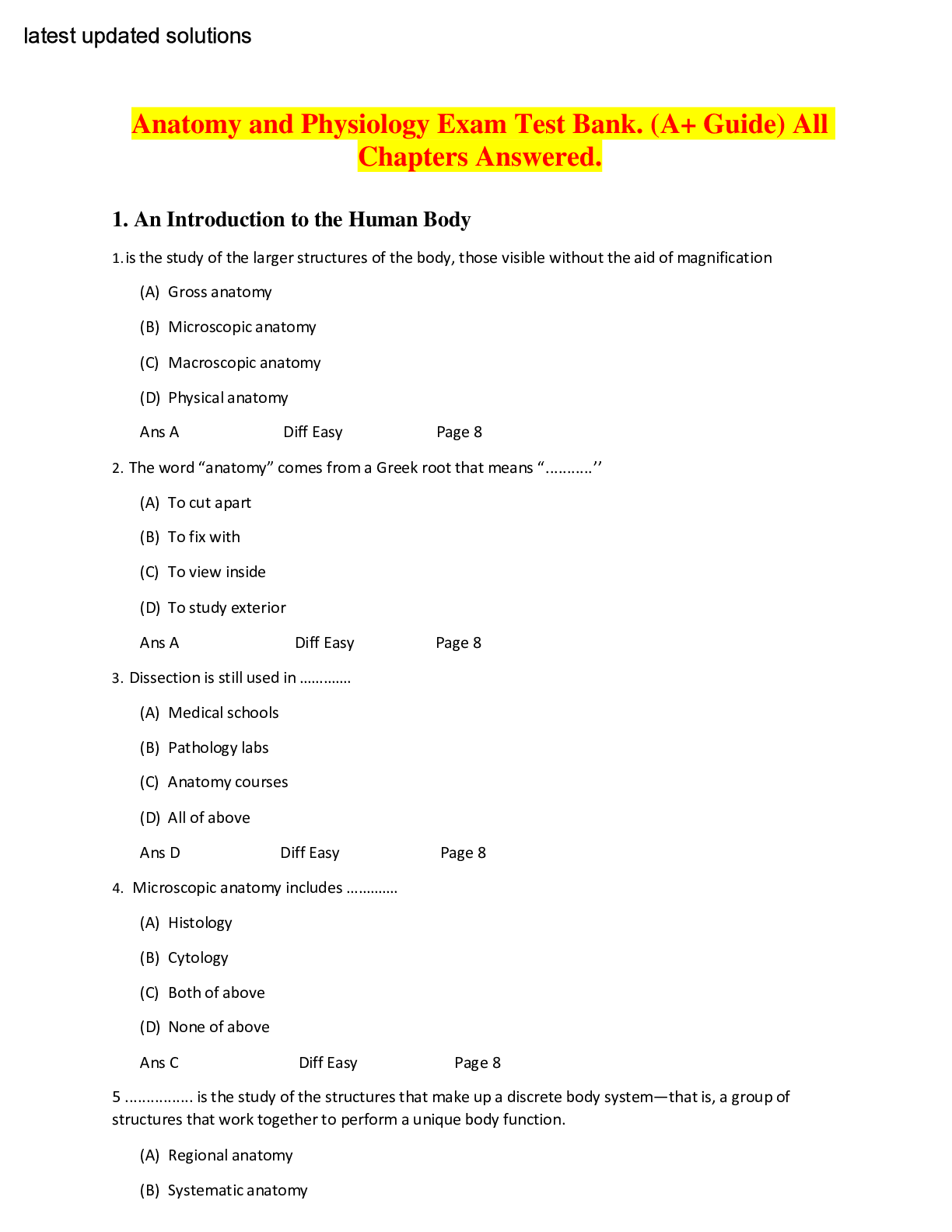
.png)


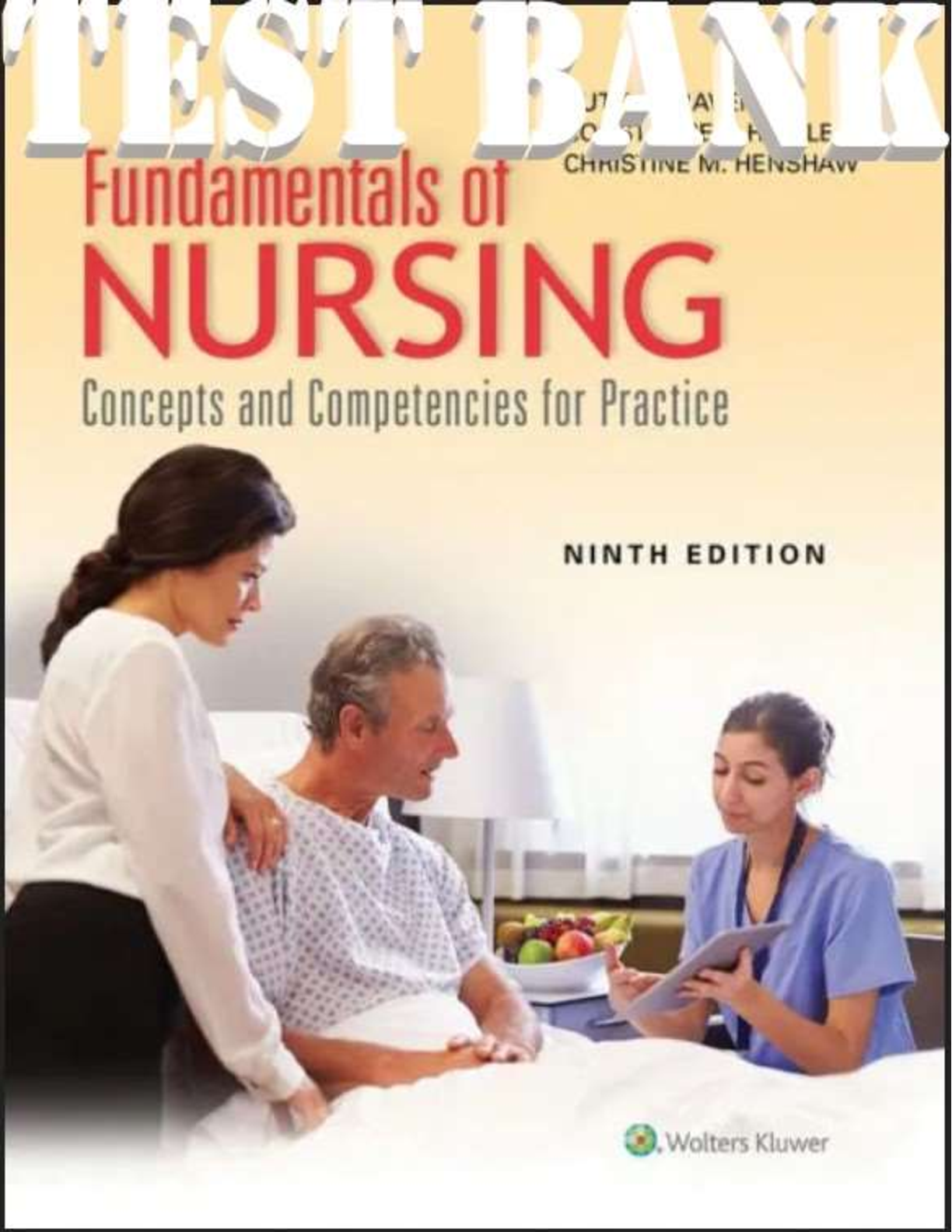
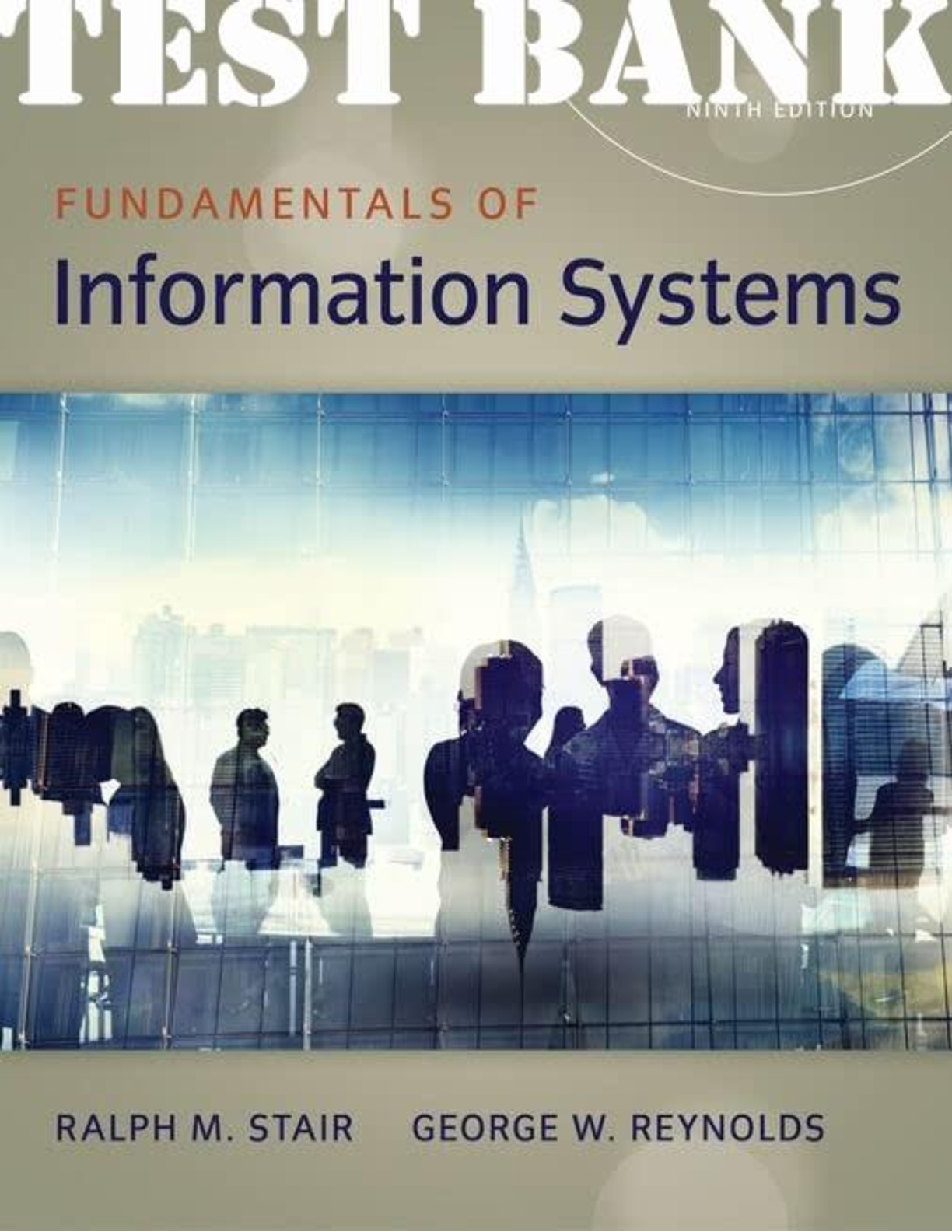



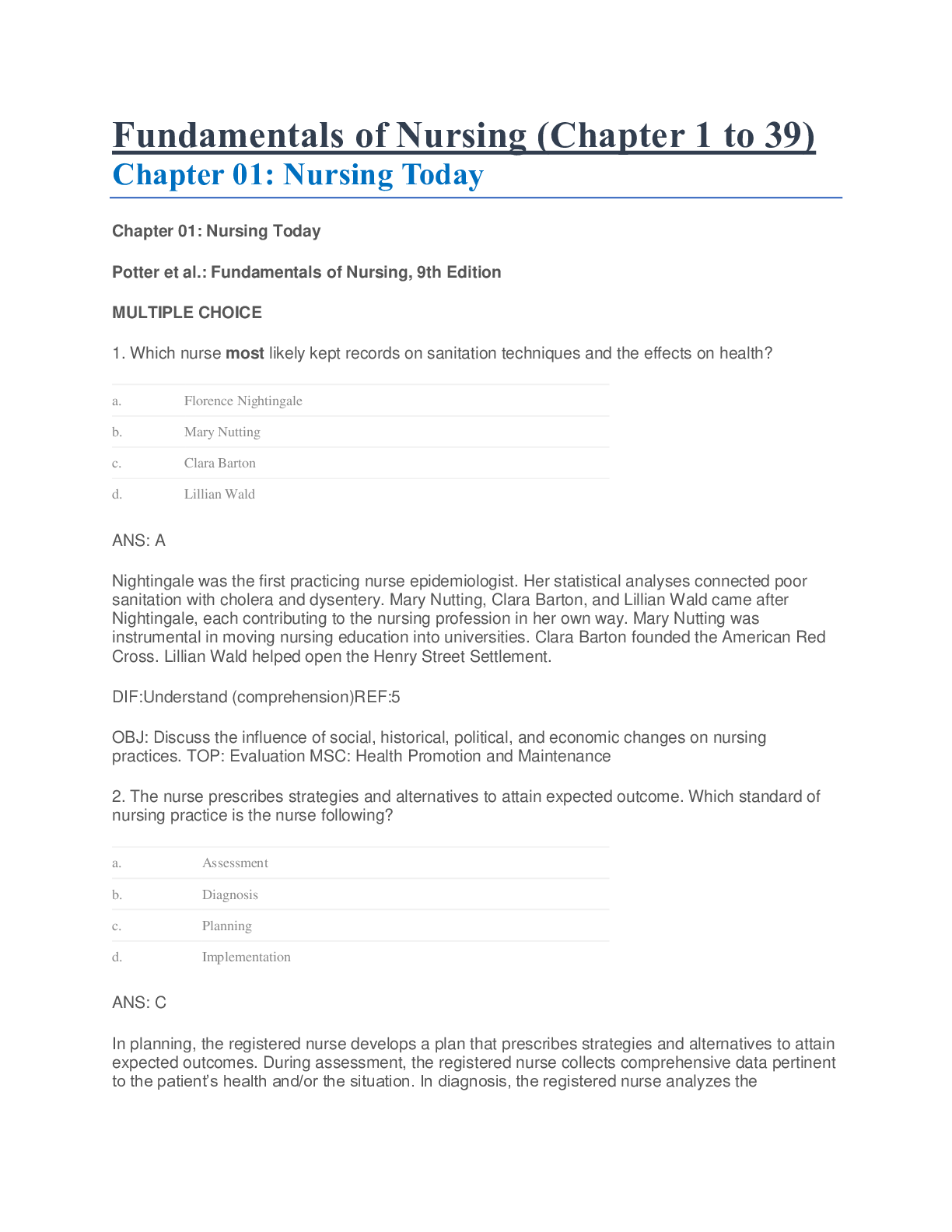

.png)
